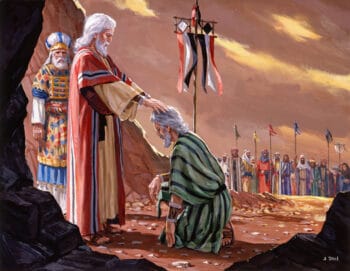Daily Lesson for Sunday 28th of September 2025
Read Deuteronomy 18:15-22 and Joshua 1:1-9. Why is it significant that the book of Joshua starts by echoing a promise related to what would happen after the death of Moses?
Though Moses had died and a new leader, Joshua, had been appointed by God, there are parallels between them. Both men had been told by God that they would lead their people into the land promised to their fathers. As the Lord said to Joshua: “ ‘Every place that the sole of your foot will tread upon I have given you, as I said to Moses’ ” (Joshua 1:3, NKJV). Joshua would finish the work that had originally been given to Moses. He was, really, a new Moses.
Read Exodus 33:11; Numbers 14:6,30,38; Numbers 27:18; Numbers 32:12; Deuteronomy 1:38; Deuteronomy 31:23; and Deuteronomy 34:9. What do these texts tell us about Joshua?
At this stage, the promise that God would “raise up” a prophet similar to Moses (Deuteronomy 18:15) is only a possibility rather than an accomplished reality. The opening words of the book of Joshua remind the reader of this promise and, at the same time, create an expectation to see it fulfilled.
Though dead, Moses still dominates the first chapter. His name is mentioned ten times, Joshua’s only four. Moses is called “the servant of the Lord” while Joshua is referred to as “Moses’ assistant” (Joshua 1:1, NKJV). It will take a lifetime of faithful service and obedience for Joshua to receive the title “servant of the Lord” (Joshua 24:29, NKJV).
Even if the first chapter of Joshua captures a transition between two great leaders of Israel, the most important character is the Lord Himself, whose words open the book and whose guidance dominates it. There are no questions as to who is the real leader of Israel.
|
Throughout the ages, God has called men and women to lead His people. Why is it crucial to remember who the true, invisible leader of the church is? |
 (0)
(0)



